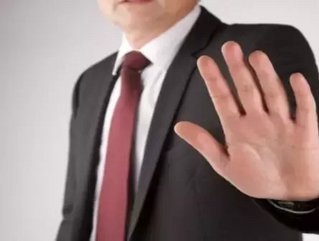When Was the Last Time You Said 'No?'

Written by Susanne Biro
I am a Seth Godin fan. If you are not familiar, you just might want to be. Indisputably one of the great marketing minds of our time, Seth is a clear and poignant communicator of big, important ideas. Simply put, his messages matter not only to your ultimate professional success, but to the success of your industry overall.
Recently, Seth posted the following list of “no”s on his blog:
No.
No, we don't take clients like that.
No, that's not part of what we offer.
No, that market is too hard for us to service properly.
No, I won't bend on this principle.
No, I'm sorry, I won't be able to have lunch with you.
No, that's not good enough. Will you please do it again?
No, I'm not willing to lose my focus, and no, I'm not willing to compromise.
A simple but effective reminder of how critical it is to know who you – and your brand – are, is served up in the power of a single word: No.
The clearer you can be about who you are, the stronger and more valuable your offering, and your brand will be. When you know who you are – what your values are, what you stand for, what you will offer and how – the better able you can be in setting the necessary boundaries. In plain language, it’s about learning to say “no” to the many opportunities in which you could partake but, when push comes to shove, probably shouldn’t.
As is reiterated by the French artisan baker Lionel Poilâne, “In business, it is very important to be able to say ‘no’ when you feel like saying ‘yes’ would mean losing your soul.” Knowing who you are remains at the core of our decisions and is a powerful place to come from when so many either don’t know who they are or worse, try to become too many things to too many people. In short: When you know who you are, you can focus. When you know who you are, you can say: “No.”
I find it curious that many people feel they have to be dishonest to others when faced with a choice between making up a story or simply saying: “No, I’m sorry I won’t be able to have lunch with you.” Why should the reality be so difficult to say? Far too many people feel they have to come up with some excuse or reason as to why they cannot – or simply do not want – to do something that’s not in the best interest of themselves personally or professionally.
The implications of this disempowered state – the avoidance of a simple “no” – is highly relevant to what occurs in more important, professional matters. And, that is to say nothing of what it is like to be on the receiving end of disempowered people. For example, if I ask you for lunch and you claim you didn’t get my voice message until too late, but your story doesn’t add up, the result is that I no longer trust you. The very outcome you were hoping for – to not damage our relationship because you simply don’t feel like lunching today or have other things you’d rather do – is exactly what results. I find it sad so many talented people feel so vulnerable professionally that they don’t yet know the freedom and success that can result when they finally stake claim as to who they really are.
In the words of the late Steve Jobs: “And it comes from saying ‘no’ to 1,000 things to make sure we don't get on the wrong track or try to do too much. We're always thinking about new markets we could enter, but it's only by saying ‘no’ that you can concentrate on the things that are really important.” Many of us admire the contributions and brilliance of Steve Jobs and wish we could be more like him. What we fail to recognize, however, is that the opportunity to be the kind of person worthy of our own admiration is always right in front of us. And it’s summed up in a two-letter word.
Now, let’s make this personal:
• What are your top 5 values?
• What is your ideal professional reputation? Write it down.
• Do your answers to the above align with your organization’s brand?
• How well do your daily interactions deliver on your ideal professional reputation – your personal leadership brand?
• If I came to your organization and spoke with the people with whom you most interact, how many would be able to recite your answer to questions 1 and 2?
• Given the above revelations, what is the one thing (yes, one thing) you most need to focus on in 2012?
And given the above, are you committed to using the word “no” a little bit more? I hope the answer to that is, well, yes.
About the Author: Susanne Biro is a senior leadership coach with Bluepoint Leadership Development and co-author of Unleashed! Expecting Greatness and Other Secrets of Coaching for Exceptional Performance as well as the corresponding Leader As Coach workshop. She can be reached at [email protected]
- Age of AI – why soft skills are more in demand than everLeadership & Strategy
- Interview: Top Workplaces President on retaining employeesLeadership & Strategy
- Rogers: driving connectivity and tech innovation in CanadaTechnology & AI
- Top Tips for Being a Successful Leader in 2020Leadership & Strategy






